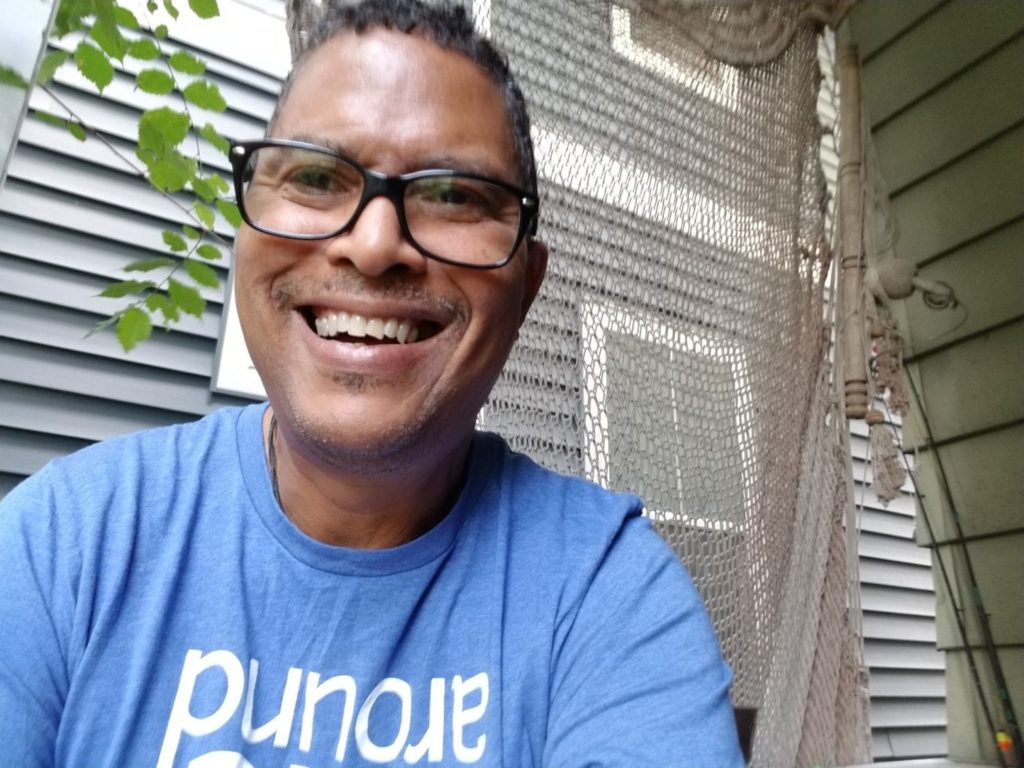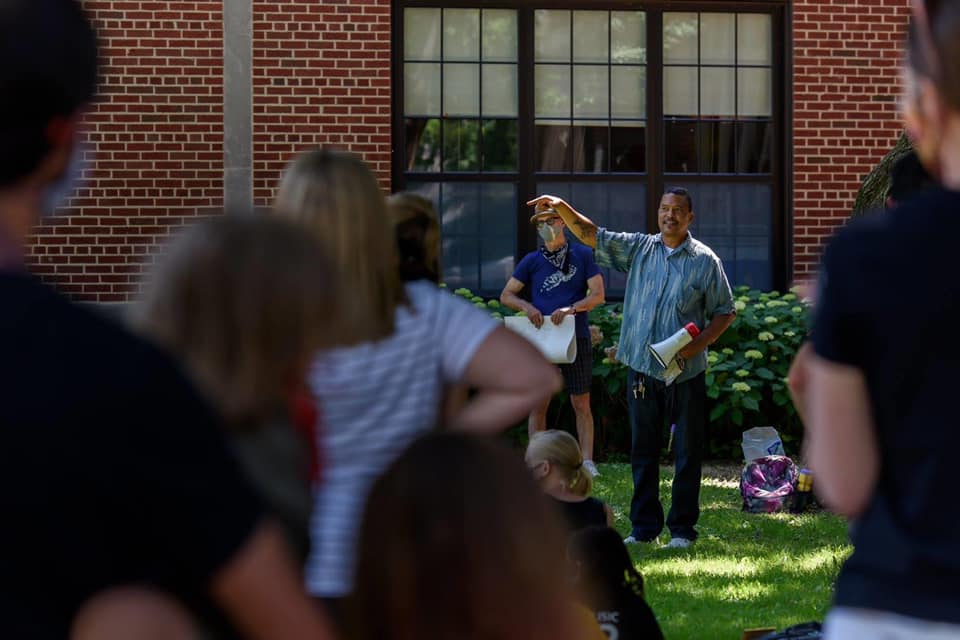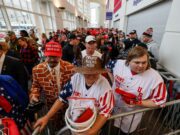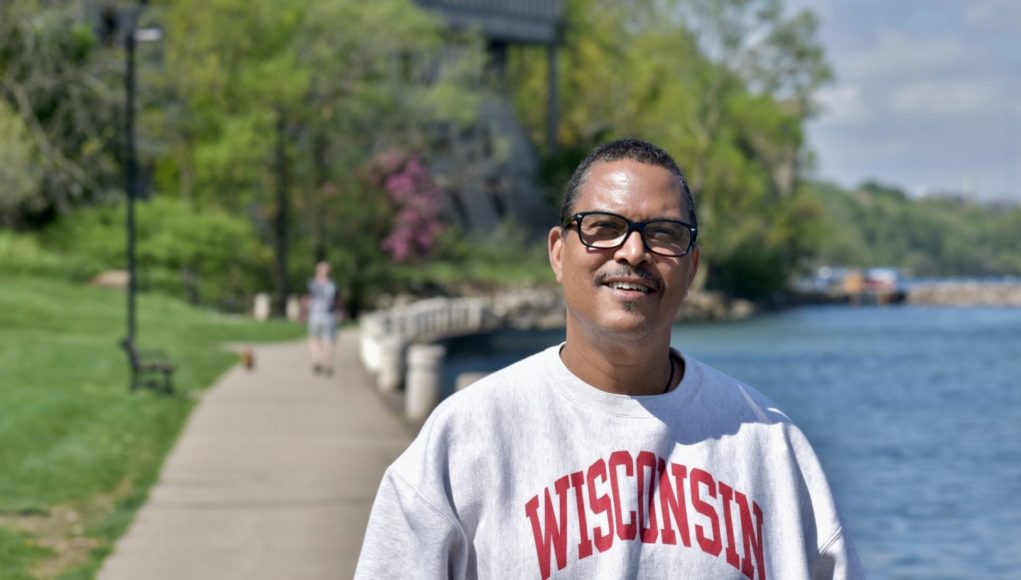There was very little diversity in the Madison Common Council when Brian Benford served two terms as District 12 alder on Madison’s east side from 2003-2007, an experience that Benford looks back fondly upon now.
“I was it initially [for diversity],” Benford laughs. “I think in my history lesson that people reminded me that I was maybe the fourth African American to serve the City at the time. But then Isadore [Knox] came the term after and since then there has been more diversity, especially in the last 5-10 years.”
Post-Race to Equity Report, an alarming 2013 study which laid out in detail the harsh racial disparities that exist in Madison, the Madison Common Council (along with the Dane County Board and the MMSD School Board) have become more racially diverse as more and more Madisonians confront the many of the issues surrounding power and privilege that Benford has been speaking about his entire life.
“I’m the product of the reality of being a 61-year-old Black man. To be honest, I don’t need a report or a memo or a policy paper to understand the insidious impacts of racism and the need to reimagine public safety,” Benford tells Madison365.
Benford feels like his lifetime of social justice work and activism in Madison – working for those who are most vulnerable in Dane County – makes him a great candidate as he looks to return to the political arena in Madison. On Dec. 3, Benford announced that he has thrown his hat into the ring to represent District 6 in the Madison Common Council.
“I think I decided to run when I recognized the tremendous need that’s out there in our community that I’ve seen in my 30 years of experience in trying to serve children and their parents and their families in Madison. I’m on the front lines and I’m seeing people who don’t know where their next check is coming from or how they’re going to put food on the table,” Benford says. “People are worried about their kids’ education or their health care or housing insecurity. I’m seeing this every day now more than ever, and I think it’s important to have a voice at the table to make sure that the most vulnerable and most marginalized people in our community have a voice.”

Many of these issues that Benford has seen for years have been exacerbated by the COVID-19 pandemic.
“Homelessness in our community, the lack of access to sustainable jobs, public safety, secure living situations,” he says. “People have been hit hard and there’s just so much need out there. I just felt compelled right now to throw my hat in the ring and bring people together from diverse backgrounds to build a socially just and equitable future.”
The City of Madison has seen numerous candidates of color announcing that they will run for office in 2021. Many have announced just this past month.
“I first came here in 1979 and Madison wasn’t particularly diverse and the thought of all of these people of color that are running for political office now inspires and warms my heart,” Benford says. “I never would have imagined in 1979 that there were five people of color running for a state senate race, for instance. That was historical. But it also shows you for far too long that we’ve been governed by policymakers without real-life experiences living in a systemic racist society and reality.”
Benford is referring to the Wisconsin State Senate race that he was recently involved in that was won by former gubernatorial candidate and State Rep. Kelda Roys. Besides Benford and Roys, the race featured Madison-area activist Nada Elmikashfi, small business owner Amani Latimer Burris (and daughter of Milele Chikasa Anana); recent UW-Madison graduate and former legislative aide Aisha Moe, former Lt. Gov candidate William Davis III; and Wisconsin Environmental Initiative head John Imes.
“For the first time in many years, people are self-reflecting on many social justice issues whether it be systemic racism, oppression, police abuses, or the insidious effects of poverty. Within the white community they are looking at their privilege deeper than I’ve ever witnessed,” Benford says. “There’s a new spotlight on racial/social justice issues. Ultimately, what it has come down to is that the people who hold power, are they willing to take a step back and give up that power?”
What did Benford learn from that campaign for State Senate?
“For that Senate race, the biggest takeaway was that the answer to that question of whether people are ready to relinquish power is, unfortunately, no,” he says. “Secondly, that big money still pollutes our political system at every level.
“But I was inspired by what I really believe I saw in that campaign … that people from different backgrounds are coming together in unity and respect to create this new world that we need. That was pretty powerful,” he adds. “But, ultimately at the state level you need a lot of money – and that’s repulsive to me with all of the need that is out there in our communities.”
Benford is currently a success coach for the UW-Madison Odyssey Project where he helps underserved and at-risk students overcome barriers to achieve their educational goals. In May, Benford earned a master’s degree in social work from UW-Madison. He is looking to succeed Alder Marsha Rummel, who has represented District 6 since 2007.
“I love Marsha. Outside of being my alderperson, I’ve known Marsha to be an amazing person with a heart of gold who is in it for all of the right reasons,” Benford says. “What has guided her is not political capital or political gain but what was best for the people she represented. The value that she placed on diverse voices and fighting for social justice was really inspirational. If I’m honored to get this seat, I will seek out her advice and guidance.”
Benford runs down some of the issues he feels are key in District 6, which encompasses Madison’s near east side from East Washington Ave. to Lake Monona. Williamson Street and Atwood Ave. run through the heart of District 6.
“In District 6, like in the other districts in the city, I think the key issue is that we provide opportunities for everyone’s voice to be heard when we talk about public safety, when we take a deep dive on social justice issues and when we talk about creating economic opportunities,” Benford says. “One thing I would like to spearhead is ensuring that everybody has a guaranteed income during these times.”
Development, traffic, affordable housing are all important issues for District 6, he says. “There’s a gentrification that some people feel is happening throughout the Marquette area and the Willy Street corridor,” Benford says. “Historic preservation is a big issue, too, that people are very concerned about.

“Fighting the F-35s is an issue. I’ve said from way back that it’s unfortunate that they’ve placed weapons of mass destruction in a city that holds progressive values dear,” Benford continues. “The issue of PFAS, polluting our waterways and our wells, is something that is important not only in this district but for the whole city. As alder, my obligation is certainly to represent District 6, but to also represent all of the people of Madison.”
Benford, who has had five children currently in or having gone through the Madison public school system – Lucas, Brianne, Maya, Jacob, and Nick – says that education and lessening the racial achievement gap will also be a big issue. Public safety, he adds, is probably the biggest issue right now. “I have a very unique perspective on that,” he says.
“On one hand, my father, my grandfather, my brother … they were all police officers. My father and grandfather were two of the first Black detectives for the City of Milwaukee and these are the men that hugged me and gave me love,” Benford adds. “But also, as a Black man, I’ve been beaten up by police in my younger age. Every dang time I get in my car, it’s in the back of my head that any police car that gets behind me raises concern. We’ve witnessed far too long people who have lost their lives while driving their cars.
“It’s all part of the unique experiences that I bring to the table that I don’t believe many others do. I carry it in my heart that everybody in the city of Madison must feel safe, protected – especially by those who are sworn to serve and protect,” he adds. “We need to come together on important issues like this – and others – and I believe I am the best person to do that because of my life experience and life trajectory … who I am, where I’ve been and what I’ve done.”



































